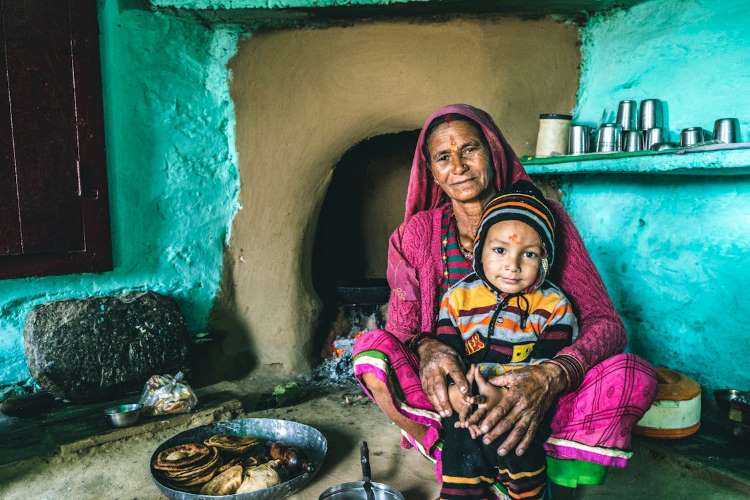Food security is the most critical concern at both national and global levels. This concern has intensified due to unprecedented challenges like the COVID-19 pandemic and ongoing geopolitical tensions. The pandemic starkly exposed vulnerabilities in global food systems, pushing an estimated 150 million more people into hunger by 2021, particularly in least developed countries across Sub-Saharan Africa, South Asia, Latin America, and the Caribbean. The crisis highlighted the fragility of international trade systems, with many countries rushing to impose export restrictions to protect domestic markets, causing severe trade disruptions and food shortages for import-dependent nations.
Despite efforts to address food security through international platforms such as the Doha Round (2001) and the Bali Ministerial Conference (2013), significant gaps remain. These gaps highlight the need for seamless, resilient trade systems to ensure stable food access, especially for LDCs that heavily rely on agricultural imports. The WTO Public Forum recently stressed on these challenges, showing how climate pressures, geopolitical tensions, and pandemics play major roles in the current food security landscape.
READ I Need to break benevolent glass ceiling to empower women in legal profession
Challenges to global food security
These disruptions have tested the resilience of the Sustainable Development Goals, particularly those related to zero hunger, poverty reduction, and global partnerships. Vulnerable regions, especially LDCs, have borne the brunt of these shocks, highlighting the urgent need to strengthen global food systems to withstand future crises.
As climate change accelerates and geopolitical tensions persist, the vulnerabilities of LDCs and food-importing nations have become more apparent. These countries face persistent challenges, including limited agricultural productivity, inadequate storage and distribution infrastructure, and a lack of financial resources to buffer against global market fluctuations. Building resilient food systems requires a multifaceted approach that addresses both immediate food needs and long-term sustainability.
The way ahead
To build resilient and sustainable food systems, particularly in LDCs, several key strategies must be pursued:
Sustainable agricultural practices: Investing in sustainable agricultural practices, such as agroecology and conservation agriculture, is critical to enhancing productivity while preserving ecosystems. Techniques like precision agriculture and no-till farming promote biodiversity and reduce the environmental impact of farming, ensuring long-term food production capacity. Sustainable intensification—producing more food on the same land using innovative technologies—is another key strategy. Argentina, for example, has adopted these practices and seen significant yield increases while maintaining environmental health, a point recently highlighted at the WTO Public Forum.
Resilient, localised food systems: Developing diverse and localised food systems can mitigate the risks associated with global supply chain disruptions. LDCs must prioritise domestic food production and diversify their crop bases to reduce dependence on a narrow range of imports. Supporting small-scale farmers, enhancing access to technology, and promoting local food distribution networks will strengthen food security at the community level.
Capacity building for food-importing countries: Strengthening the capacity of food-importing countries to improve agricultural production, storage, and distribution is essential. This requires investments in agricultural infrastructure, technical assistance, training, and technology transfer. Building robust storage facilities and improving food safety systems will better prepare countries to handle external shocks, whether caused by pandemics, climate change, or trade disruptions.
Diversifying trade relationships: LDCs should aim to diversify their trade relationships beyond traditional partners to reduce their vulnerability to supply chain disruptions. By expanding trade ties with a broader range of countries, including emerging markets, they can reduce dependence on any single source of imports and ensure more stable food supplies. Additionally, fostering equitable trade partnerships that prioritise food security will be key to achieving this goal.
Leveraging green export strategies: Many developing countries are beginning to prioritise green exports as part of their broader economic strategies. Initiatives like national green export strategies, which promote eco-friendly agricultural products such as cacao, fish, and vegetable oils, can provide new avenues for LDCs to participate in the global market. By aligning trade with sustainability goals, countries can ensure that their agricultural sectors contribute to both economic growth and environmental protection.
Humanitarian aid and social safety nets: Robust social safety nets are essential for protecting vulnerable populations during crises. Programs such as cash transfers, food assistance, and nutrition support can alleviate immediate food insecurity and promote long-term resilience. Governments and international organisations must work together to ensure that humanitarian aid reaches those in need and that these safety nets are strengthened during times of crisis.
Addressing root causes: The root causes of food insecurity — poverty, inequality, conflict, and climate change — must be addressed to create stable environments for food security. Investing in conflict resolution, poverty alleviation, and climate adaptation strategies will create the conditions necessary for agricultural sectors to thrive, particularly in LDCs.
In the face of contemporary global challenges — pandemics, geopolitical tensions, and climate change — the need for resilient, equitable food systems has never been more urgent. Policymakers and governments must act decisively to strengthen international cooperation, invest in sustainable agriculture, and build food systems that can withstand future shocks. The focus must remain on fostering resilient food systems, supporting sustainable practices, and enhancing the capacity of all countries to manage their food security. Now is the time to act, building a future where food security is guaranteed for all.
(Sovini Mondal works with NCAER, New Delhi. Views are personal.)

